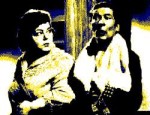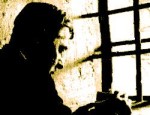Film Review

Plein soleil was the film that made Alain Delon a world-renowned film star. It also pretty well defined his screen persona for the rest of his career, and it is hard to imagine an actor who was better suited to play the enigmatic Tom Ripley, the most seductive serial murderer in American fiction. Patricia Highsmith, the author who created the character, was particularly impressed by Delon's portrayal and may conceivably have drawn on it for her subsequent Ripley novels. Belle Ombre, the name that Highsmith gave to Ripley's residence in France, is as apt an epithet for Delon as it is for the conscience-free psychopath he played so superbly at the start of his illustrious career.
Despite its sumptuous Mediterranean setting, beautifully photographed by Henri Decaë (arguably the greatest of all French cinematographers), Plein soleil is the quintessential French polar, one that shows its roots in classic American film noir with an almost shameless pride. The film's popularity, both at home and abroad, helped to galvanise and rejuvenate what was, by the late 1950s, becoming a tired genre, resulting in the birth of the modern French policier, in which Alain Delon would become an active contributor for the next two decades. Twelve years before he conceived his famous score for The Godfather (1972), the Italian composer Nino Rota lent his talents to Plein soleil, a film which may, indirectly, have led to the rebirth of the gangster film in America. It can certainly be argued that Alain Delon's subsequent gangster portrayals, in such films as Jean-Pierre Melville's Le Samouraï (1967) and Henri Verneuil's Le Clan des Siciliens (1969), provided a template for their hard-boiled American counterparts of the 1970s and beyond.
Whilst Plein soleil is unquestionably an inspired adaptation of Highsmith's novel (far superior to Anthony Minghella's insipid 1999 version, The Talented Mr. Ripley) it differs markedly from its source. The most obvious departure from the novel is the Hitchcock-style ending, which Highsmith decried as a cowardly concession to public morality. (Controversially, the author allowed her character to evade capture at the end of the novel and resurrected him fifteen years later in Ripley Under Ground, the second of her five Ripley novels.) The Tom Ripley character that René Clément and his screenwriter Paul Gégauff present us with is far more opaque and ambiguous than Highsmith's creation, less deserving of our sympathy and yet still irresistibly alluring. There is a subtle menace and latent carnal savagery to Delon's portrayal, redolent of a wild panther quietly stalking its prey, which makes him a fascinating but slightly terrifying subject for a film. As in the novels, we feel compelled to side with this dark screen manifestation of Tom Ripley, and yet at the same time we are appalled by his behaviour, which is aggravated to shocking proportions by his outward boyish beauty. Ripley's lack of moral awareness and the ease with which he prosecutes his criminal exploits chill us to the core. 'Can a human being be capable of such unconscionable evil?' we ask ourselves, scarcely daring to ask the more profound question: why do we succumb so easily to the allure of such monstrous characters?
Restored by Studio Canal in 2013 to its former sun-drenched glory, Plein soleil showcases French cinema of the early 1960s at its best, a film that is totally untainted by the tedious pretensions of the French New Wave and yet liberated from the starched morality and filmmaking techniques of earlier decades. The presence of Alain Delon and two other promising newcomers, Maurice Ronet and Marie Laforêt, with a fleeting (uncredited) cameo appearance by Romy Schneider (Delon's fiancée at the time), adds to the film's striking modernity, ensuring that it would always rank highly in the league of French film classics. Plein soleil marked a high watermark for its director René Clément, who would never again deliver a film so visually compelling as this or as emotionally intense as his previous masterpieces Jeux interdits (1952) and Gervaise (1956). As for its star, the talented Mr Delon, this was just the beginning...
© James Travers 2013
The above content is owned by frenchfilms.org and must not be copied.
Film Synopsis
An impoverished young American, Tom Ripley, is offered a handsome reward by a wealthy businessman to bring his son, Philippe Greenleaf, back home to take over the family business. For the last few years, Philippe has been living the life of a playboy idler in Italy, amusing himself with his girlfriend Marge, at his father's expense. Far from persuading Philippe to return home, Tom ends up becoming the object of his cruel jokes and his envy for the richer man develops into calculating hatred. After Philippe has left him stranded in a dinghy for several hours, Tom is ready to put his plan into action. Once he has driven a wedge between Philippe and Marge he cold-bloodily kills Philippe during another excursion on his yacht. Having thrown the body overboard, Tom returns to the mainland and assumes Philippe's identity with cunning ease, forging his signature so that he can help himself to money in his bank account. All goes well until one of his victim's friends, Freddy Miles, shows up and immediately sees through Ripley's game. Tom soon finds he has another dead body to dispose of...© James Travers
The above content is owned by frenchfilms.org and must not be copied.
Similar Films
Here are some other films you may enjoy watching:- Another Man's Poison (1951)
- The Nickel Ride (1974)
- The Day of the Jackal (1973)
- The Big Heat (1953)
- The Bad Sleep Well (1960)
Other related links:
Film Credits
- Director: René Clément
- Script: Patricia Highsmith (novel), René Clément, Paul Gégauff
- Cinematographer: Henri Decaë
- Music: Nino Rota
- Cast: Alain Delon (Tom Ripley), Maurice Ronet (Philippe Greenleaf), Marie Laforêt (Marge Duval), Erno Crisa (Riccordi), Frank Latimore (O'Brien), Billy Kearns (Freddy Miles), Ave Ninchi (Signora Gianna), Viviane Chantel (The Belgian lady), Nerio Bernardi (Agency Director), Lily Romanelli (Housekeeper), Nicolas Petrov (Boris), Elvire Popesco (Mrs. Popova), Paul Muller (Blind Man), Romy Schneider (Freddy's companion), Barbel Fanger
- Country: France / Italy
- Language: French / Italian / English
- Support: Color
- Runtime: 118 min
- Aka: Lust for Evil ; Purple Noon
The Carry On films, from the heyday of British film comedy

The best films of Ingmar Bergman

The very best fantasy films in French cinema
